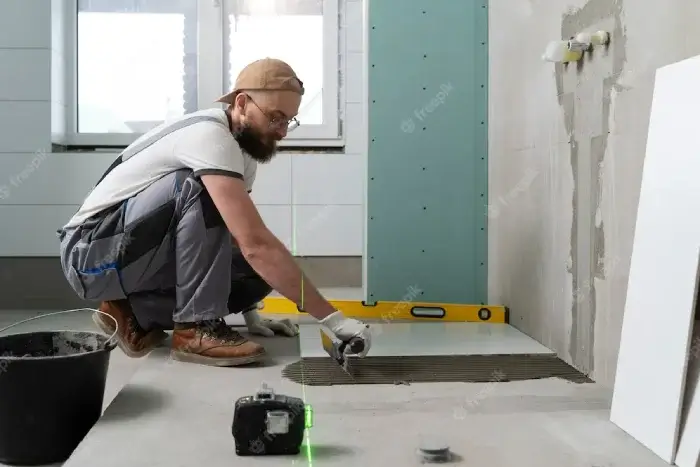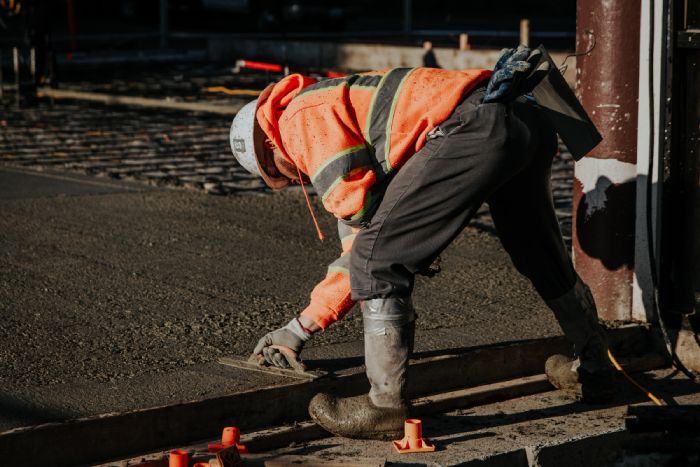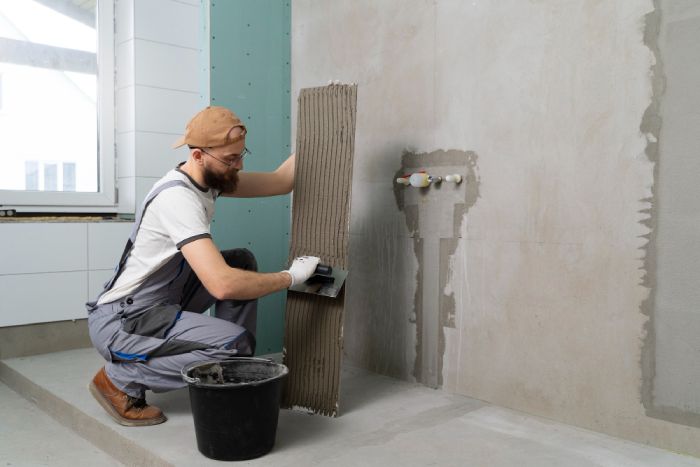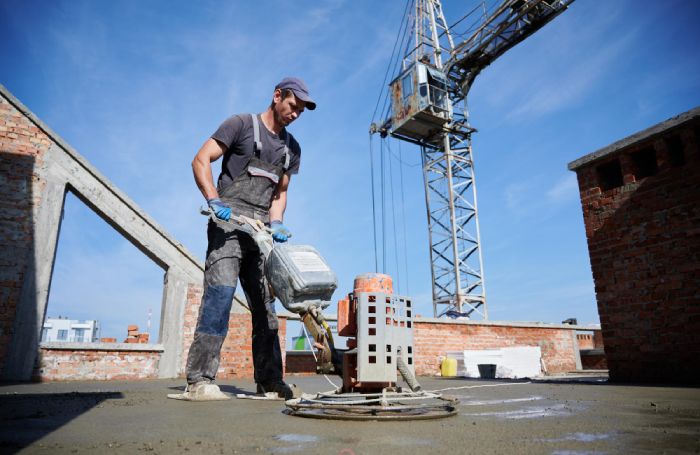Are you considering epoxy flooring for your home or business? If so, you’re probably wondering how much it will cost. Cost is an important factor in any renovation project. We understand the need to get a good price on your flooring installation without sacrificing quality. That’s why we’re here today to provide all the information you need about epoxy flooring costs.
In this article, we will look at the factors influencing the cost of installing epoxy floors, from materials and labor costs to local market rates and more. Let’s dive right in!
Types of Epoxy Flooring
Epoxy flooring is a versatile and cost-effective way to improve the look of any room. Several types of epoxy flooring are available, each with different finishes and installation requirements. The type you choose will depend on your budget and desired results.
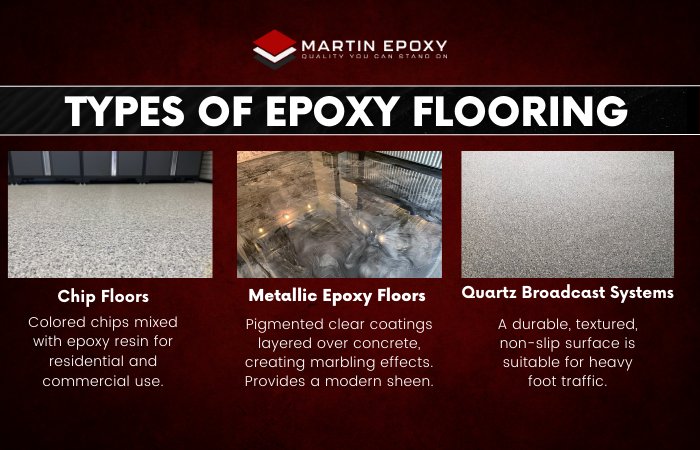
- Chip floors —- This involves mixing batches of colored chips or flakes in an epoxy resin solution before applying it to the prepped surface. These can be used for residential and commercial applications, making them one of the more commonly installed types. Chip floors can range from low to high in terms of cost, depending on how intricate the design is and if professional installation is required.
- Metallic epoxy floors —- This provides a modern sheen that adds depth and sophistication to any space. This type involves mixing pigment into clear coatings layered over concrete surfaces creating unique marbling effects for added beauty. Metallic epoxies also come at various price points depending on complexity but tend to require professional installation services due to their difficult application process.
- Quartz broadcast systems —- This offers a durable finish without sacrificing aesthetics, providing a textured non-slip surface that looks great while still withstanding heavy foot traffic. Quartz broadcast installations typically cost between $3-$7 per square foot when professionally applied, taking into account labor costs, materials, etc.
These three types represent just a fraction of what’s available within the realm of epoxy flooring options; however, understanding these basics should help you narrow down your choices when deciding what fits best for your project needs and budget constraints.
Benefits of Installing Epoxy Flooring
Installing epoxy flooring offers a range of benefits that make it worth considering. Here are some advantages of having an epoxy floor:

- Durability — Epoxy is incredibly durable, making it ideal for high-traffic areas and those prone to heavy wear and tear. It can withstand many types of pressure or impact without cracking or chipping, ensuring your floors stay looking great for longer.
- Slip-Resistant — The smooth surface created by laying down epoxy makes the area much less slippery than other forms of flooring, which is especially beneficial in environments where there may be water on the ground, such as kitchens or bathrooms. This helps ensure safety for staff and customers alike.
- Customization — You can customize the look of your epoxy floor with various colors, patterns, and textures to suit any space’s needs. Whether creating a bold statement piece in a showroom or looking for something more subtle in an office space – you’ll find plenty of options when choosing epoxy!
- Easy to Clean — One of the best features about epoxy floors is how quick they are to clean – all it takes is a simple sweep or mop, and any dirt will come right off! Cleaning during regular maintenance cycles saves time, leaving you free to focus on other things.
- Cost savings — Not only does installing epoxy provide long-term protection from damage, but it also helps save money due to its low upkeep costs compared to other materials like ceramic tiles or wood planks. Its smooth finish eliminates the need for additional waxes or polishes; just wipe it now and then, and you’re done!
Factors Affecting the Cost of Installing Epoxy Flooring
Epoxy consists of a liquid resin and a hardener combined to form the material. The resulting product is aesthetically pleasing and provides superior protection from wear and tear. In addition, it can be easily customized with different colors and textures for any desired look or feel. Epoxy flooring costs can vary greatly, depending on several factors.
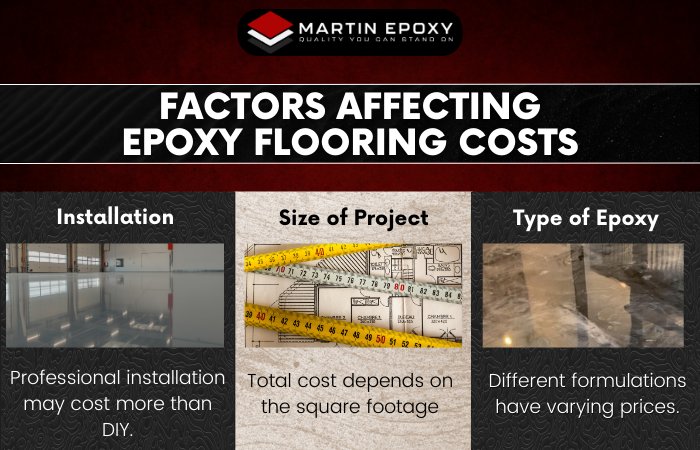
- Installation Cost — If you hire a professional contractor, it may cost more than if you decide to install it yourself and save some money in labor costs.
- Size of your Project — The size measured in square footage will also affect the total cost. A small area with straightforward preparation work may be cheaper than larger spaces requiring extensive surface prep and primer coating before applying the final layer of epoxy.
- Type of epoxy chosen — The epoxy type for the project could also influence the overall cost; certain formulations are more expensive than others due to their particular properties or desired aesthetic effect.
All these elements must be considered when calculating an accurate estimate of what it’ll cost to install your epoxy floor properly. With this information in mind, one can now consider average cost estimates for installing epoxy flooring.
Average Estimates for Epoxy Flooring Cost
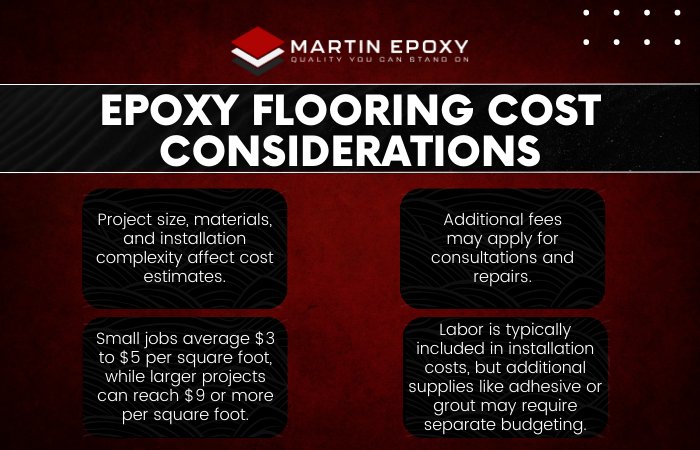
Epoxy flooring cost estimates vary widely depending on the project size, materials chosen, and the complexity of installation. The average epoxy flooring cost for a small job can range from $3 to $5 per square foot, while larger projects may run up to $9 or more per square foot. Epoxy flooring cost will also depend on whether any existing floors need to be removed before installation and what type of surface preparation is required before application.
In addition, there are extra fees associated with professional services, such as consultations and repairs, that should be considered when planning an epoxy flooring project. Epoxy installation prices typically include labor but not necessarily all related supplies like adhesive or grout, so it’s essential to factor in those additional expenses too.
Tips for Saving Money on Installation of Epoxy Flooring Costs
When it comes to epoxy flooring, the cost can play a major role in your decision-making process. Fortunately, you can save on installation costs without sacrificing quality.

- Budget accordingly — Knowing how much you can spend before starting the project is important. This will ensure you spend your money wisely and avoid unexpected expenses. Also, consider researching different suppliers and their pricing to find the best deal.
- Opt for DIY — While hiring professionals may be necessary for specific tasks like preparing subfloors or laying down adhesive layers, other jobs, such as mixing materials or applying primer coats, could be done by DIYers who feel comfortable handling these projects themselves. Doing some of these tasks yourself could potentially lead to significant cost savings, so it’s worth looking into if you want to rein in your overall budget.
Research discount offers — Flexible timing can reduce costs since many contractors offer discounts if they can finish the job quickly due to fewer delays or interruptions from weather conditions. If you have some wiggle room regarding timeline constraints, it might be worth taking advantage of any discounted rates offered by installers who need time-sensitive projects completed immediately.
Conclusion
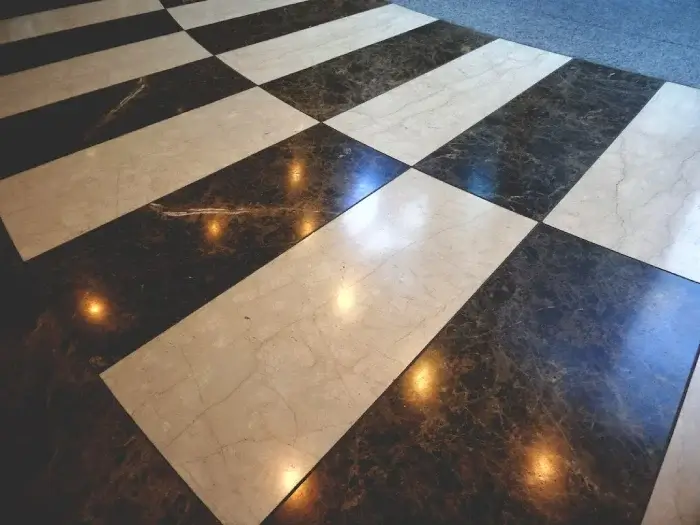
Epoxy flooring is a great investment for any home or business. It’s an attractive and durable option that can last many years without needing to be replaced. The poxy flooring cost will vary depending on the type of epoxy being used, as well as other factors such as labor costs and the size of the area being covered. But with some research and careful planning, you can get a good estimate of what it will cost to install your new epoxy flooring.
At Martin Epoxy, we offer cost-effective epoxy flooring installation without sacrificing quality and workmanship. So, contact us today to get the best value out of your long-term investment.

